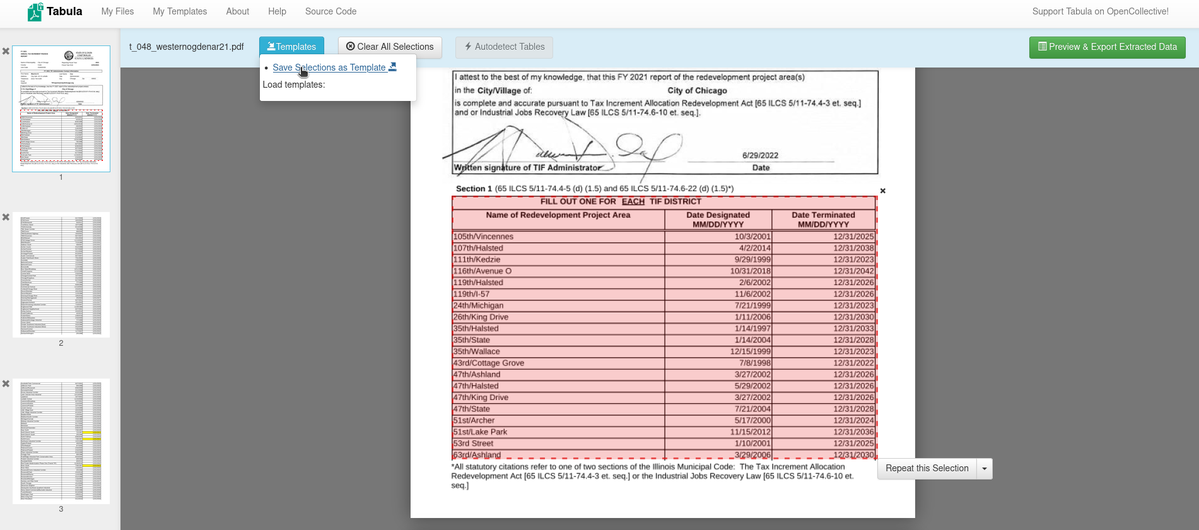Last week we pushed a number of changes, from making it easier to crowdsource your FOIA finds to reducing the amount of follow ups in many jurisdictions. Plus, we have an opportunity to turn your chatbot dreams into reality.
For previous site improvements, check out all of MuckRock’s release notes, and if you’d like to get a list of site improvements every Tuesday - along with ways to help contribute to the site’s development yourself - subscribe to our developer newsletter at the top or bottom of this page.
Site updates
More easily crowdsource your FOIA responses
If you’ve got back a bunch of documents from various FOIA requests and need help going through all the material, we’ve got your back. You can now bulk select requests you’d like to load into our Assignments tool and add individual pages for analysis, as opposed to asking questions on a per-document basis.
To get started, create a draft Assignment (currently only available for Pro and Organization subscribers), go to Your Requests, select the requests you’d like analyzed, and choose the appropriate bulk action:
If you’ve got questions or ideas on how you’d like to tap your readers to help analyze large sets of documents, reach out and we’d love to help.
Fewer follow ups at local level
At the local and state level, we were following up based on whatever the jurisdictions deadline was, where applicable. So if a jurisdiction had a deadline of five days, we’d follow up automatically every five days.
Feedback from users and agencies indicated that this was too frequent, so we’ve standardized follow ups:
- First follow up is when the legal deadline has passed.
- Future automatic follow ups are two weeks after the last communication either way — so as long as an agency gives you updates at least once every 14 days, we won’t automatically follow up.
You can still manually follow up with an agency at any time. Also, if an agency provides an estimated completion date, we’ll only follow up once every six months until that estimated completion date is hit.
At the federal level, we automatically follow up monthly. You can bulk turn on and off follow ups from your request list, or turn them on and off at the bottom of any request page.
Apply to build Quackbot’s next super power
A reminder that we’re still taking applications to be our News Nerd in Residence, where you’ll get a chance to work with our team on building new super powers for Quackbot, our chatbot platform for news and transparency tools. To help, we have an open call for “News Nerds in Residence”: Selected developers are given a stipend to work hand-in-hand with us to take their ideas, prototypes, or internal tools and make them available for everyone to be able to take advantage of right within Slack.
If you have a simple, useful tool you think could translate well into a chat-based bot, we’d like to hear from you.
The application is just four questions, embedded right below - but if you have questions, get in touch with Aron Pilhofer and we’d love to talk about whether your idea is a good fit.
Come hack on MuckRock
We have a growing group of volunteer hackers helping to make MuckRock’s suite of tools better every day. We have a project and a weekly newsletter, “Release Notes,” that highlights everything we’re working on. Register to get a summary of site updates each week and details on open issues you can help with.
Check out some of our issues labeled “help wanted” for ideas on where’s good to start, or just pop into our Slack’s #Developers channel.
Subscribers to the weekly newsletter get exclusive data sets, FOIA-related scripts, and other transparency hacker tidbits exclusively for subscribers. You can subscribe to to the newsletter at the top or bottom of this page.
If you want to contribute better FOIA tools for thousands of requesters, there’s a number of ways to help. If you find a bug you can email us directly or open an issue on GitHub.
If you do the latter, please search open issues first to make sure it hasn’t already been reported. If it has been reported previously, please leave an additional comment letting us know it’s an issue for you, particularly if you can provide more details about when it crops up or what you think is causing the problem.
In addition to the new newsletter, we have a developer channel on the MuckRock Slack.
Image via Wikimedia Commons




